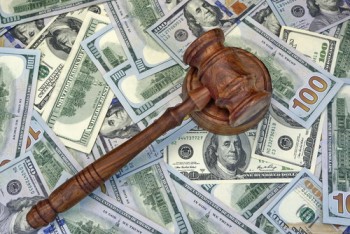In patent cases, imposing attorney fees will ‘hamper equal access to justice,’ ABA says

Image from Shutterstock.com.
In an amicus brief filed with the U.S. Supreme Court on Monday, the ABA says: “Imposing governmental attorneys’ fees on patent applicants who choose civil actions under [the law] will hamper equal access to justice and chill the assertion of meritorious claims.”
The Supreme Court is considering in Peter v. NantKwest Inc. whether the phrase “all the expenses of the proceedings” in a provision of U.S. patent law includes expenses incurred by the U.S. Patent and Trademark Office when its attorneys defend the office in litigation.
The ABA filed its amicus brief in support of NantKwest Inc., a California-based immunotherapy company that owns the cancer treatment patent application in question in the case, according to an ABA press release. It asks the Supreme Court to affirm an en banc decision by the U.S. Court of Appeals for the Federal Circuit, which held that the Patent and Trademark Office’s interpretation that “all expenses” included payment for its attorneys was invalid.
A three-judge panel of the Federal Circuit had agreed with the government, ruling that language in a recent revision of patent law permitted the Patent and Trademark Office to recover $33,103.89 in expert fees and nearly $80,000 in attorney fees from NantKwest Inc.
“For nearly two centuries, the phrase ‘all the expenses of the proceedings’ has been understood to mean that the applicant must pay only the PTO’s out-of-pocket expenses for the proceedings, such as travel costs and expert witness fees,” the ABA says in its brief. “The PTO now urges a radical, novel departure from that long-standing interpretation.”
In 2016, the ABA House of Delegates adopted a formal policy opposing interpretations of patent and trademark laws that imposed government attorney fees on applicants that challenged Patent and Trademark Office decisions in federal courts.
“The doors of justice should be open to all, regardless of individual prosperity,” the ABA says. “But the PTO’s interpretation would mean that applicants’ wealth would determine their access to the pathway to justice provided by Congress. That interpretation would shut the door to the congressionally created Section 145 pathway for applicants lacking funds to pay for the federal government’s lawyers.”
Oral arguments in the case are scheduled for Oct. 7.



